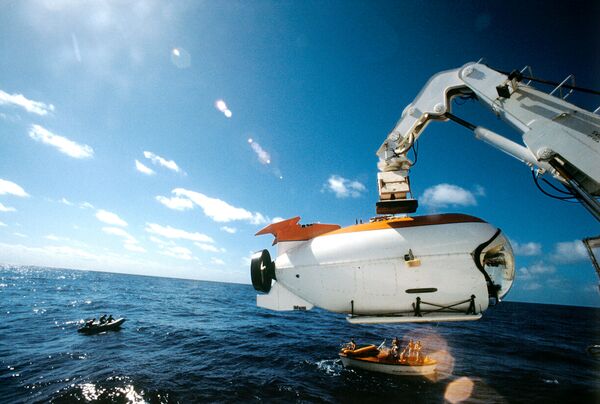Russian Finance Minister Alexei Kudrin dove to the bottom of the world's deepest freshwater lake, Lake Baikal, and took soil samples, the Irkutsk regional government's press service said on Monday.
Kudrin was accompanied on the three-hour dive on Sunday by Irkutsk Governor Dmitry Mezentsev on the Mir-1 submersible doing research work near the island of Olkhon.
Kudrin and Mezentsev dove down almost half a kilometer, where they studied the lake's fauna and took soil samples from the bottom of the lake.
"There is a feeling of pride and admiration that we have the ability to conduct such research," Kudrin was quoted by the press service as saying.
Two deputies from Russia's lower house of parliament Vladimir Gruzdev and Artur Chilingarov announced they would dive to the bottom of Lake Baikal in one of the two submersibles in order to locate the absolute deepest point.
Gruzdev said on his last dive, researchers fixed the maximum depth of the lake at 1.68 kilometers (5,511.81 feet), but wanted to find an even deeper spot.
Gruzdev said Russia's Mir-1 and Mir-2 self-propelled deep submersibles are exploring the bottom of Siberia's Lake Baikal for gas hydrates, an alternative energy source.
Gas hydrates are crystal-based solids which physically resemble packed snow. Scientists call them "the fuel material of the future" because they have a higher concentration of hydrocarbons and are considered to be a possible alternative to oil and gas.
The underwater expedition of Lake Baikal started in 2008. This summer, researchers searched for new species of flora and fauna, and dove down more than a mile (1.6 kilometers) to the deepest point of the lake, near Olkhon Island.
The mini-subs worked in the southern part of the lake, and in August 2009 the expedition moved to Baikal's north, where gas hydrates, crystalline solids, and large amounts of methane are trapped within a cage of water molecules, were found.
The total cost of the expedition is $8 million, with one dive worth 2 million rubles ($64,800).
Mongolian President Tsakhiagiin Elbegdorj became the first president to dive to the bottom of Baikal in the Mir-1 mini-submarine in mid-July.
Russian Prime Minister Vladimir Putin made a 4-hour dive in the Mir-1 mini-submarine to the bottom of Lake Baikal in August last year.
NOVOSIBIRSK, August 2 (RIA Novosti)


